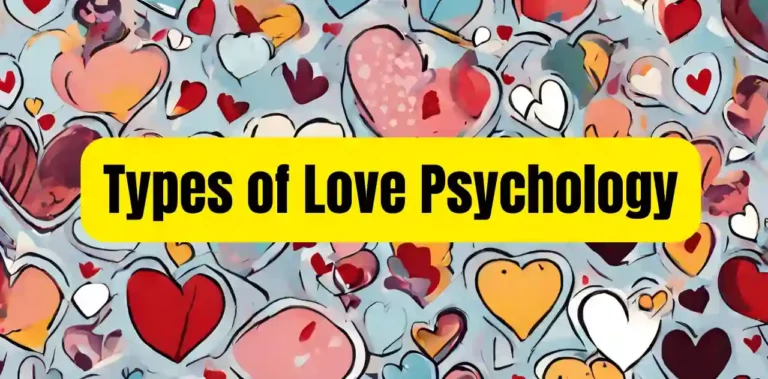What are the seven types of love experiences?
Love is a complicated feeling that people have been curious about for a long time. A psychologist named Robert Sternberg came up with a way to understand love better. He called it the Triangular Theory of Love, and it has three parts: intimacy, passion, and commitment. These components interact in various ways, giving rise to seven distinct types of love experiences. Let’s take a look into the intricacies of each type and explore the dimensions of human connection.

Liking
Liking, the simplest form of love, is characterized by intimacy alone. This type of love mirrors the bonds we share with friends and acquaintances. It’s a connection founded on emotional closeness without the intensity of passion or the commitment of a romantic relationship.
Infatuation
Infatuation, fueled by passion alone, arises when physical attraction takes center stage. This type of love is often associated with the exhilarating feelings of desire and the thrill of a newfound crush. However, it lacks the depth of intimacy and the steadfast commitment seen in more mature forms of love. See Also: What Type of Lover are You? Types of Lovers
Empty Love
Empty Love emerges from commitment alone. In this scenario, individuals may be committed to a relationship, but there is an absence of both intimacy and passion. It reflects a union where dedication persists, but the emotional and physical connections may be lacking.
Romantic Love
Romantic Love combines intimacy and passion, creating a potent mix of emotional and physical connection. This is the love experienced in the early stages of a relationship when the flames of passion are burning brightly, and emotional bonds are deepening.
Companionate Love
Characterized by intimacy and commitment, Companionate Love represents the enduring connections found in long-term partnerships. While the initial passion may have waned, the bond remains strong, grounded in shared experiences and a commitment to one another.
Fatuous Love
Fatuous Love arises from the combination of passion and commitment. This type of love may be driven by physical attraction, with commitment formed hastily and without the foundation of deep emotional intimacy. See Also: Types of Love Psychology
Consummate Love
At the pinnacle of Sternberg’s Triangular Theory lies Consummate Love, characterized by the presence of all three components: intimacy, passion, and commitment. It represents the ideal and complete form of love, where emotional closeness, physical attraction, and unwavering commitment coalesce to form a profound connection.
Discover your Love Personality
Discover your unique Love Character with our quick and fun Love Character Test. Answer simple questions about your preferences and communication style to gain insights into your distinct way of loving. Whether you crave passion, companionship, or support, this test helps you understand yourself better and build deeper connections with others.
FAQs
A1: Yes, love experiences are dynamic and can evolve based on various factors such as life stages, personal growth, and the dynamics of the relationship.
A2: Achieving Consummate Love requires effort and compatibility. While it may be challenging, it is not necessarily rare and can be cultivated with mutual understanding and commitment.
Conclusion
Understanding the seven types of love experiences through Sternberg’s Triangular Theory provides valuable insights into the complexities of human relationships. Whether it’s the thrill of infatuation, the enduring bonds of companionate love, or the ideal completeness of consummate love, each type contributes to the rich tapestry of human connection. As we navigate the intricacies of love, embracing its diverse forms fosters a deeper understanding of ourselves and the relationships we cultivate.







